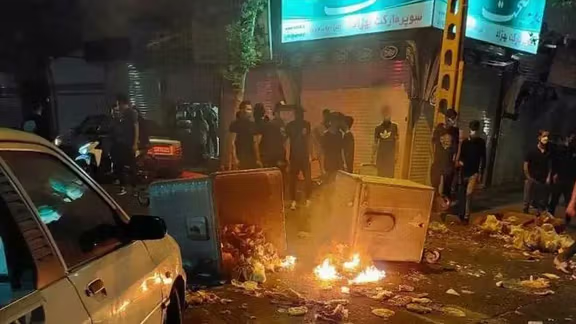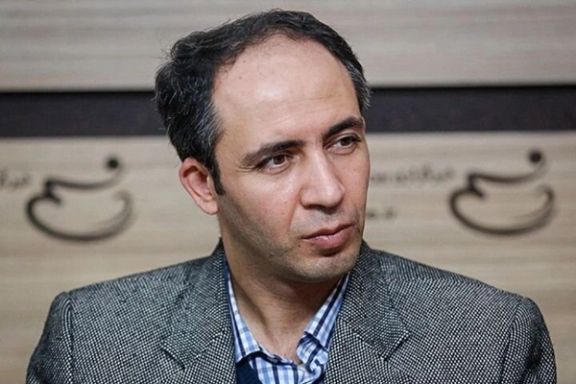Expert Says Iran’s Inflation To Soar Beyond 50% In 2023

An economist says if Tehran fails to revive the 2015 nuclear deal, the country’s economy will suffer further and see an inflation of over 50 percent next year.

An economist says if Tehran fails to revive the 2015 nuclear deal, the country’s economy will suffer further and see an inflation of over 50 percent next year.
Fararu, which is a pro-reform website, interviewed Iranian economist Vahid Shaqaqi Shahri who said if the regime fails to clinch an agreement with the West over its controversial nuclear program and revive the JCPOA, the country may experience higher inflation that might bring its economic growth to zero in 2023.
Shaqaqi told Fararu that while Iran’s neighbors including Turkey and Saudi Arabia have experienced double-digit growths in the past few years, the economy of the Islamic Republic has shrunk in the face of sanctions and skyrocketing inflation.
Iran’s economy is almost completely state-run and the decision-makers in the country show no flexibility or interest in reform even though many warn the system needs drastic changes. The average annual inflation in the sixth months of the current Iranian year reached 42.1%, the Statistical Center of Iran announced in a report in September.
As the streets of many cities have turned into scenes of antigovernment protests since mid-September in the latest wave of anger at the totalitarian approach of the clerical regime towards cultural, political, and economic issues, there seems to be no glimpse of hope for any reforms by the authorities.
The people who are currently venting anger against the Islamic Republic in the streets and demand regime change are fed up with economic pressure and see a gloomy future for themselves; however, the government keeps cracking down, showing no interest in reforms.

In his Saturday interview with the Fararu news website, Shaqaqi said that the Iranian “economy has no more capacity to tumble down further.”
This university professor also referred to a recent report by the International Monetary Fund (IMF) which has forecast high energy and food prices and tougher economic conditions in 2023, warning that without “economic reforms, empowering the private sector, development of non-oil exports, and increase in investments,” Iran might see a more crippled economy next year.
Earlier this week, the IMF reported that with “Russia’s invasion of Ukraine, and the lingering COVID-19 pandemic all weigh heavily on the outlook, global growth is forecast to slow from 6.0 percent in 2021 to 3.2 percent in 2022 and 2.7 percent in 2023.”
This Iranian expert further noted that there are two more possible scenarios for the Iranian economy next year. “The optimistic scenario is that the JCPOA will be revived, and with the removal of the sanctions, the inflation rate will decrease to 20 percent and an economic growth of five percent could be achieved.”
With a slight increase in oil sales, Iran's economy has gained about 40 billion dollars from non-oil exports and imported a total worth of 45 billion dollarsin goods, Shaqaqi said, adding that the country has achieved economic growth of two to three percent, as predicted by the International Monetary Fund. However, he said, “if the conditions remain the same and sanctions are not increased,” one or two percent economic growth along with a 40 percent inflation can also be seen for Iran in 2023.
Iran’s economy is mostly influenced by political power. The government believes that in case of losing control over the economy, it will lose political authority.
A notable example is the Revolutionary Guard that plays a very significant role in the economy by monopolistic practices. Several cases of corruption and mega-size embezzlements have diminished popular trust in the regime.